If our freedom is so fragile that it must be continuously protected by giving it up, then we are in deep trouble. —Karl Hess


If our freedom is so fragile that it must be continuously protected by giving it up, then we are in deep trouble. —Karl Hess

If some men are entitled by right to the products of the work of others, it means that those others are deprived of rights and condemned to slave labor. No man can have a right to impose an unchosen obligation, an unrewarded duty, or an involuntary servitude on another man. There can be no such thing as “the right to enslave” —Ayn Rand

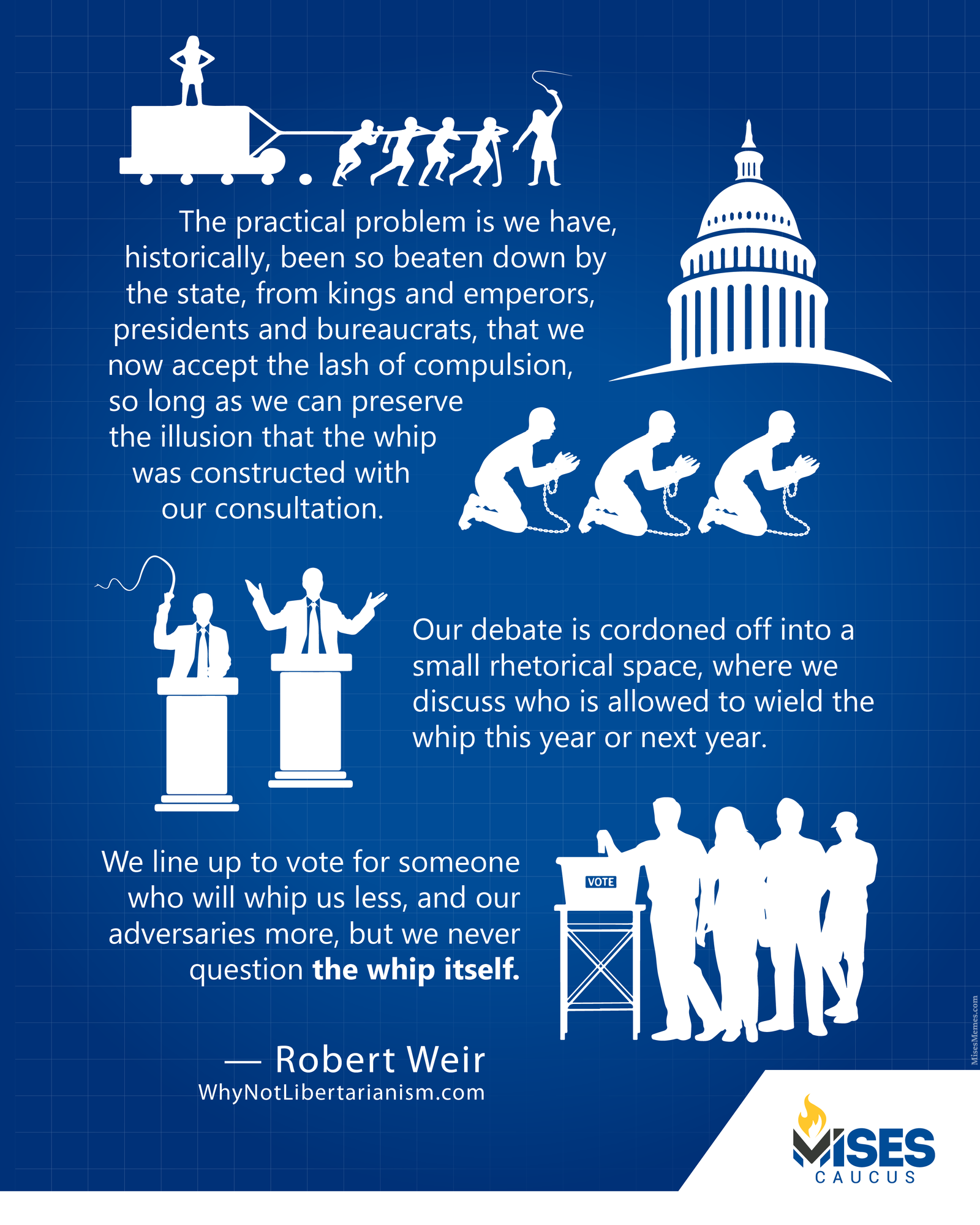
The practical problem is we have, historically, been so beaten down by the state, from kings and emperors, presidents and bureaucrats, that we now accept the lash of compulsion, so long as we can preserve the illusion that the whip was constructed with our consultation. Our debate is cordoned off into a small rhetorical space, where we discuss who is allowed to wield the whip this year or next year. We line up to vote for someone who will whip us less, and our adversaries more, but we never question the whip itself. —Robert Weir (WhyNotLibertarianism.com)
The practical problem is we have, historically, been so beaten down by the state, from kings and emperors, presidents and bureaucrats, that we now accept the lash of compulsion, so long as we can preserve the illusion that the whip was constructed with our consultation. Our debate is cordoned off into a small rhetorical space, where we discuss who is allowed to wield the whip this year or next year. We line up to vote for someone who will whip us less, and our adversaries more, but we never question the whip itself. —Robert Weir (WhyNotLibertarianism.com)
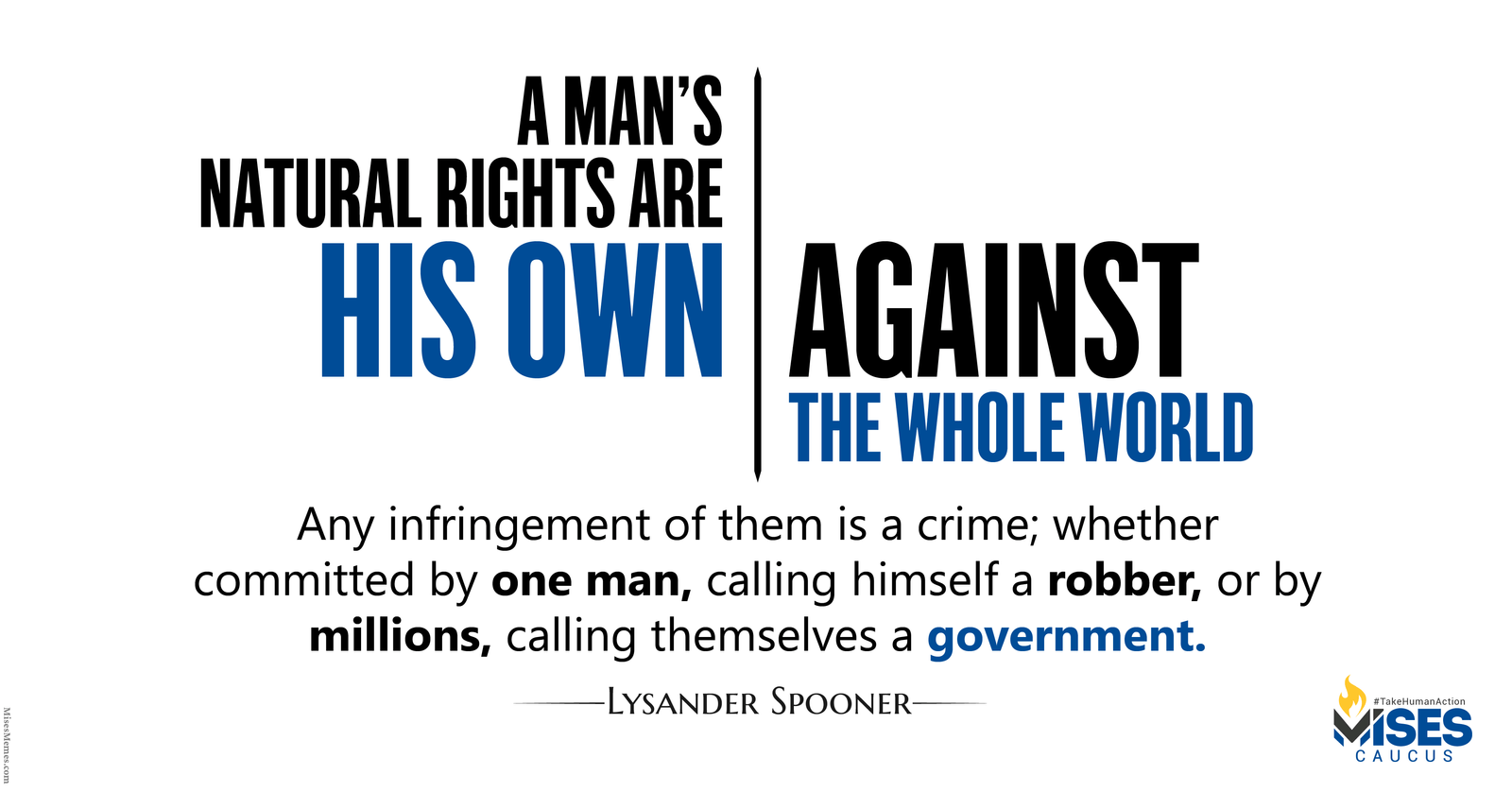
A man’s natural rights are his own, against the whole world; and any infringement of them is equally a crime, whether committed by one man, calling himself a robber, or by millions, calling themselves a government. —Lysander Spooner

The act of reaching into one’s own pockets to help a fellow man in need is praiseworthy and laudable. Reaching into someone else’s pocket is despicable. —Walter Williams
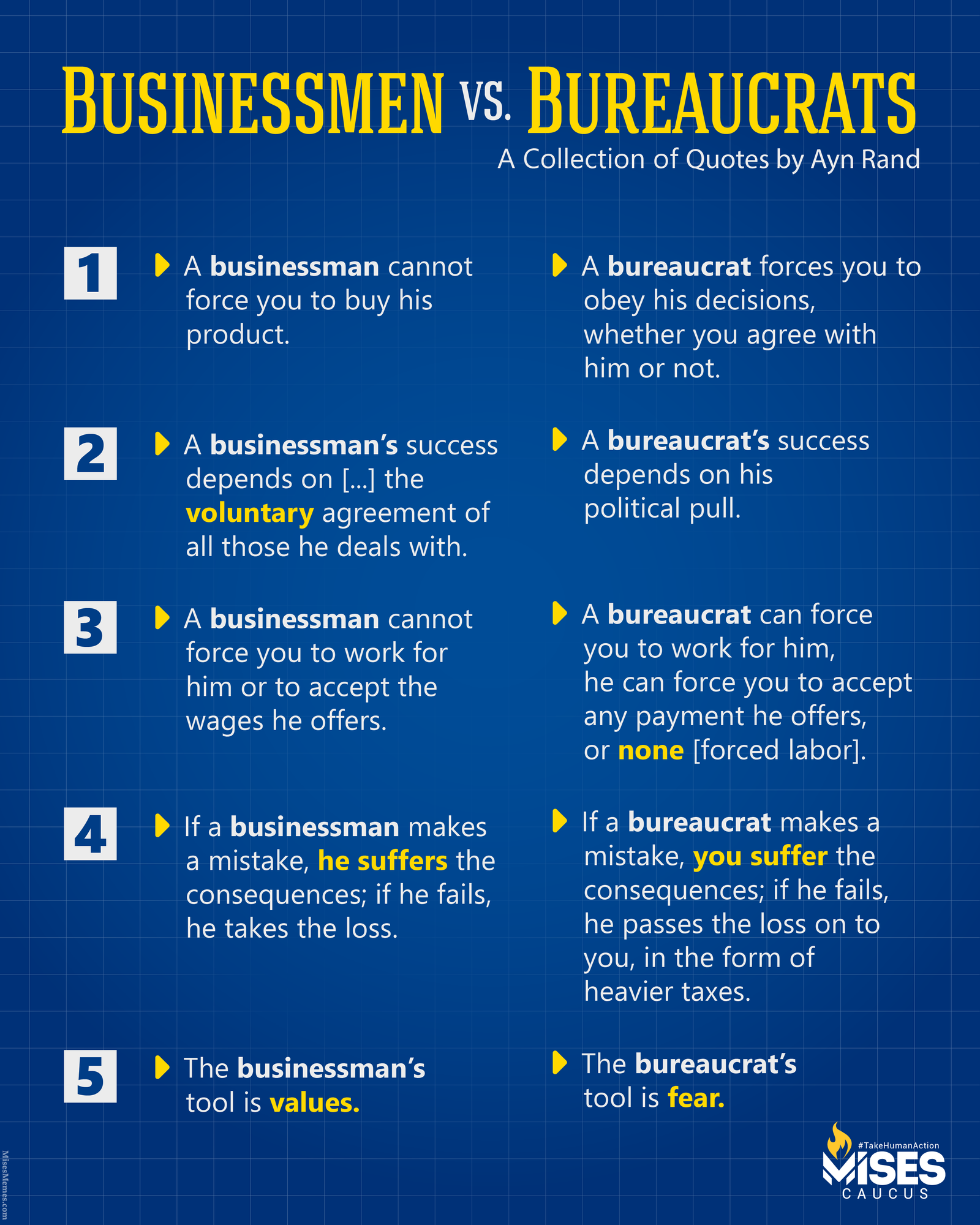
A businessman’s success depends on his intelligence, his knowledge, his productive ability, his economic judgment—and on the voluntary agreement of all those he deals with: his customers, his suppliers, his employees, his creditors or investors. A bureaucrat’s success depends on his political pull. A businessman cannot force you to buy his product; if he makes a mistake, he suffers the consequences; if he fails, he takes the loss. A bureaucrat forces you to obey his decisions, whether you agree with him or not—and the more advanced the stage of a country’s statism, the wider and more discretionary the powers wielded by a bureaucrat. If he makes a mistake, you suffer the consequences; if he fails, he passes the loss on to you, in the form of heavier taxes.
A businessman cannot force you to work for him or to accept the wages he offers; you are free to seek employment elsewhere and to accept a better offer, if you can find it. (Remember, in this context, that jobs do not exist “in nature,” that they do not grow on trees, that someone has to create the job you need, and that that someone, the businessman, will go out of business if he pays you more than the market permits him to pay you.) A bureaucrat can force you to work for him, when he achieves the totalitarian power he seeks; he can force you to accept any payment he offers—or none, as witness the forced labor camps in the countries of full statism.
The businessman’s tool is values; the bureaucrat’s tool is fear.
—Ayn Rand
A businessman’s success depends on his intelligence, his knowledge, his productive ability, his economic judgment—and on the voluntary agreement of all those he deals with: his customers, his suppliers, his employees, his creditors or investors. A bureaucrat’s success depends on his political pull. A businessman cannot force you to buy his product; if he makes a mistake, he suffers the consequences; if he fails, he takes the loss. A bureaucrat forces you to obey his decisions, whether you agree with him or not—and the more advanced the stage of a country’s statism, the wider and more discretionary the powers wielded by a bureaucrat. If he makes a mistake, you suffer the consequences; if he fails, he passes the loss on to you, in the form of heavier taxes.
A businessman cannot force you to work for him or to accept the wages he offers; you are free to seek employment elsewhere and to accept a better offer, if you can find it. (Remember, in this context, that jobs do not exist “in nature,” that they do not grow on trees, that someone has to create the job you need, and that that someone, the businessman, will go out of business if he pays you more than the market permits him to pay you.) A bureaucrat can force you to work for him, when he achieves the totalitarian power he seeks; he can force you to accept any payment he offers—or none, as witness the forced labor camps in the countries of full statism.
The businessman’s tool is values; the bureaucrat’s tool is fear.
—Ayn Rand
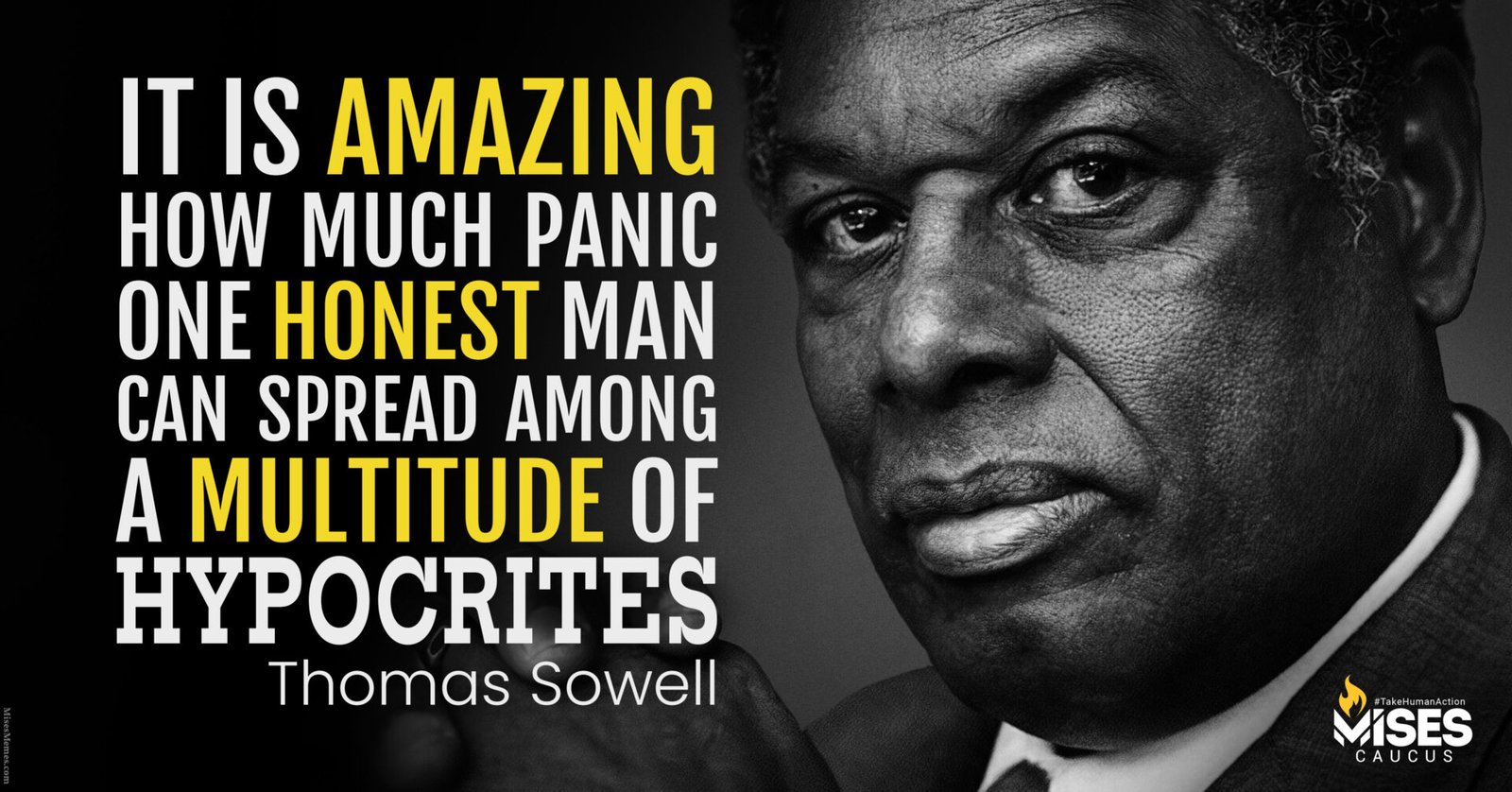
It is amazing how much panic one honest man can spread among a multitude of hypocrites. —Thomas Sowell
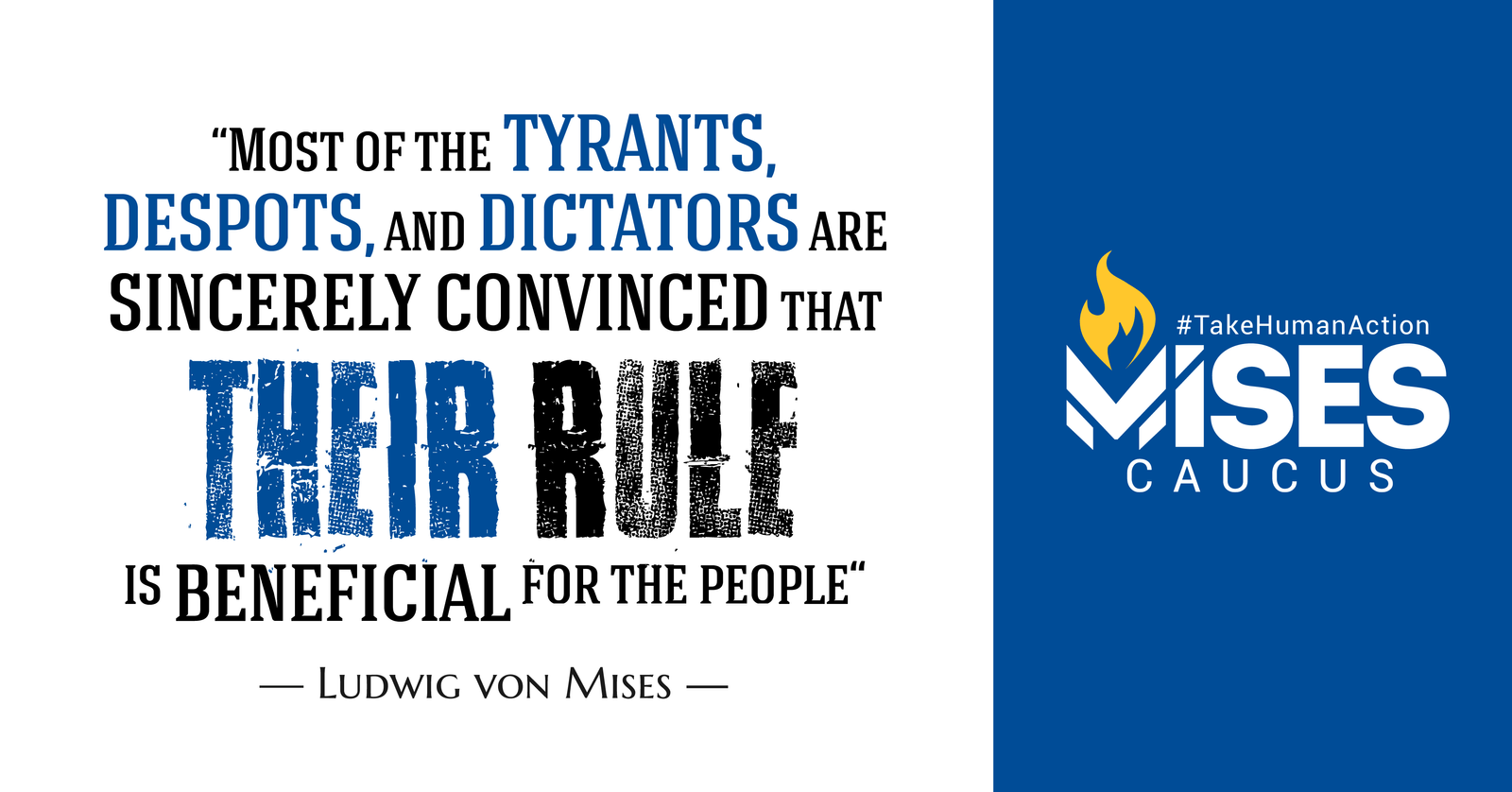
Most of the tyrants, despots, and dictators are sincerely convinced that their rule is beneficial for the people. —Ludwig von Mises
